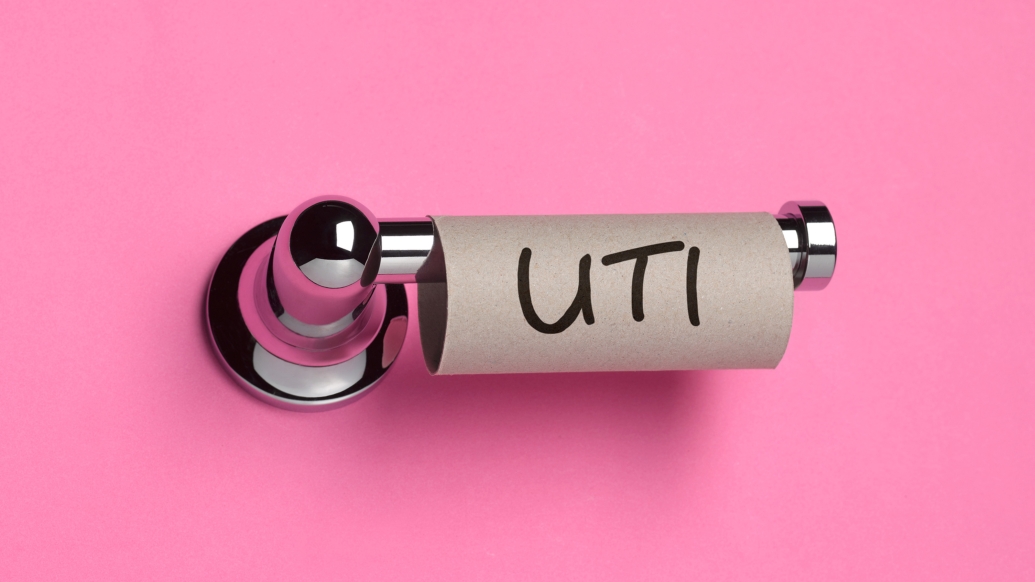A study reveals the important role of energy-producing transporters in bad bacteria that could be a new target for UTI therapies
12:27 PM
Author |

Through a quirk of anatomy, women are especially prone to urinary tract infections, with almost half dealing with one at some point in their lives.
Scientists have been trying to figure out for decades how bacteria gain a foothold in otherwise healthy people, examining everything from how the microbes move inside and stick to the inside of the bladder to how they deploy their toxins to produce uncomfortable and often painful symptoms.
Research published in PNAS examines how the bacteria Escherichia coli, or E. coli—responsible for most UTIs—is able to use host nutrients to reproduce at an extraordinarily rapid pace during infection despite the near sterile environment of fresh urine.
Investigators working in the lab of Harry Mobley, Ph.D., at the University of Michigan Medical School began by looking at mutant strains that weren’t as good at replicating in mouse models to identify bacterial genes that may be important for establishing infection.
Doing so, they identified a group of genes controlling transport systems as critical.
“When bacteria need something to grow, say an amino acid, they can get it in two ways,” explained Mobley, who is the Frederick G. Novy Distinguishes Professor of Microbiology and Immunology.
“They can make it itself, or they can steal it from their host using what we call a transport system.”
Their previous gene expression screen revealed that nearly 25% of bacterial genes were dedicated to replication tactics including transport systems for specific amino acids, which E. coli use to bring in thousands of molecules per second, said Mobley.
First author Allyson Shea, Ph.D., a former member of Mobley’s lab and now assistant professor of Microbiology and Immunology at the University of South Alabama, cross referenced a library of transport proteins from E. coli against other species of UTI pathogens to see which were important for infection. She discovered that a type of transporter called ABC (for ATP-binding cassette) transporters appeared to be critical.
Then using organ agar made from the mouse urinary tract, she confirmed that ABC transporters were essential for infection. Many bacteria strains lacking these nutrient import systems were defective for growth on bladder and kidney organ agar.
“It appears bacteria make an investment into these energy expensive ATP transport systems in order to have a higher affinity for the energy sources they are interested in,” said Shea.
“These systems are very, very good at getting nutrients inside the cell.”
The findings, Mobley notes, open avenues for the development of new therapeutics—which is especially important in an era of increasing antibiotic resistance.
“If you inhibit these transport systems, maybe you can inhibit the rapid growth of these bacteria,” he said.
Doing so won’t be easy, notes Shea, as bacteria have evolved multiple backups systems for this important class of transporters.
“What’s nice about this ATP-binding family is they all have an ATP binding subunit which gives the transport system the energy it needs to get nutrients across the cell membrane.”
This subunit could potentially be a target to make the entire family of transporters dysfunctional.
While this wouldn’t necessarily replace antibiotics, she says, it could slow down growth so that antibiotics and the host immune system could do a better job at stopping the bugs.
Additional authors include Valerie S. Forsyth, Jolie A. Stocki, Taylor J. Mitchell, Arwen E. Frick-Cheng, Sara N. Smith, and Sicily L. Hardy.
Citation: “Emerging roles for ABC transporters as virulence factors in uropathogenic Escherichia coli,” PNAS. DOI: 0.1073/pnas.2310693121
Sign up for Health Lab newsletters today. Get medical tips from top experts and learn about new scientific discoveries every week by subscribing to Health Lab’s two newsletters, Health & Wellness and Research & Innovation.

Explore a variety of health care news & stories by visiting the Health Lab home page for more articles.

Department of Communication at Michigan Medicine
Want top health & research news weekly? Sign up for Health Lab’s newsletters today!





